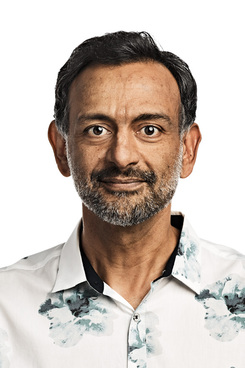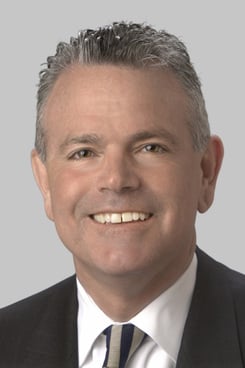As the non-fungible token (NFT) market heats up, there has been a feeding frenzy at law firms to service spikes in demand. As a result, in-house teams, government agencies and law firms are all vying for a small pool of talent that can understand this increasingly important space.
Corporate legal departments, in particular, are scrambling to find lawyers who are versed in NFT issues, amid an uptick in regulatory scrutiny and recent crypto market crashes.
“Both startups and well-established companies jumping into the space are increasingly requiring specialized lawyers to help them navigate this evolving regulatory landscape,” said Thanh Nguyen, director of Major, Lindsey & Africa’s in-house counsel recruiting group.
Whether they are coming from law firms with specialized practices or in-house at a company focused on digital assets, Ngyuen said, many digital assets businesses are looking for specialized skill sets, including NFT, crypto, blockchain, data privacy, cybersecurity and IP.
“Candidates who have certain legal specialist skillsets, on top of the industry experience, are in even greater demand,” she said.
Scott Shipman, chief legal officer at Dapper Labs, said that NFTs are often misunderstood as one thing or another, which lends to over-inclusion and under-inclusion at the same time.
“Often, they can deal with intellectual property, but are also commonly used in payments, financial, identity and other services and goods. Even though the technology itself is relatively simple, there are few people, let alone lawyers that understand it,” he said.
Shipman added that while they may know the substantive law of the services and goods, to be effective, they also need to understand how the technology works.
“Therefore, there is a significant scarcity of good lawyers practicing in the area of NFTs,” he added.
Fierce Competition for In-House Talent
Shipman said the demand for such lawyers is everywhere, adding that one firm he works with lost its entire crypto team to in-house offers within just a couple of months.
“The perceived financial opportunity to go in-house from a firm, [particularly] before the winter, was too great to pass up,” he said.
According to Nguyen, the compensation required to attract top legal talent in-house often depends on the specific strength and market position of the company and the profile of the legal talent needed.
“The pay ranges span the gamut and the key to nailing the right pay range is not just having a keen understanding of the company’s market position but also appeal and marketability to the right candidate pool, which in the NFT space can vary greatly from company to company,” she said.
At an early-stage company, Shipman said, in-house NFT lawyers get offers within the 99th percentile for base cash, top equity, plus some form of digital token.
Nguyen said while the NFT space is a good place to start when looking for lawyers versed in these issues, finding good legal talent definitely requires dipping into other in-house legal talent pools, such as financial services, more traditional tech companies, both startups and publicly traded companies, and adjacent industries such as fintech. After all, NFTs haven’t been around very long.
Some legal chiefs look outside the NFT, blockchain and cryptocurrency space entirely for lawyers to fill roles.
Shipman said he looks for in-house NFT lawyers at tech companies and then teaches them about blockchain and NFTs—unless there is a perfect fit from a blockchain company.
“Rarely am I hiring from a firm,” he said.
 Paul Grewal of Coinbase. Courtesy photo
Paul Grewal of Coinbase. Courtesy photoIn a previous conversation, Paul Grewal, CLO of Coinbase, said when he’s looking for NFT legal talent, he has one question at the top of his mind: Is this a lawyer who knows how to get stuff done?
“Lawyers who get stuff done can come from any background,” he said. “It’s less about experience in certain subject matter and more about a tenacity and desire to push through obstacles.”
But for some lawyers, the opportunity to join an industry that allows them to delve into cutting-edge issues in an area that continues to mature in size and sophistication is appealing, said Adam Schuman, general counsel of Menai Financial.
Shipman said the attorneys are the ones who are winning the talent war because compensation for such roles is at a premium. Adding that during the winter months, in-house roles were ahead but up until a few weeks ago, but now, firms will likely be a safe haven.
“With talk of a looming economic slowdown and the recent crypto market crashes, there will certainly be winners and losers amongst companies—with some losing out on top candidates while plenty of others gain more traction with candidates because of their stable market position within the NFT or digital asset industry,” Nguyen said.
The Value of Government Experience
Federal and state governments tasked with not only regulating the NFT space, but also enforcement against bad actors, are also in the fray when it comes to trying to hiring lawyers to meet their own demand.
In fact, the Securities and Exchange Commission has recently revealed it will add 20 more positions to its Crypto Assets and Cyber Unit—the unit responsible for protecting investors in crypto markets and from cyber-related threats. Part of the rationale nearly doubling the size of this unit, according to the SEC, is a desire to focus on investigating securities law violations related to NFTs.
“They’ll open up new hiring to cover NFTs, but in the initial instance the SEC will probably reallocate some people from other either generalized investigation groups, or from specialized groups that aren’t seeing as much activity,” said a former SEC lawyer, speaking on condition of anonymity.
But these lawyers won’t necessarily need to initially even understand what is an NFT, said the former SEC lawyer, who left the SEC enforcement division several months ago and now works in at an Am Law 100 firm.
“The key skill for SEC lawyers looking at NFTs is to apply the Howey Test—the SEC’s legal test for whether something qualifies as an investment—to novel products and situations,” he said.
Rachel Nonaka, a D.C.-based recruiter at Macrae who is also a former SEC lawyer, thinks that presently, there is no such thing as an NFT expert at the SEC. Nor does there need to be.
“The technology is just so new. But there are experts in innovation at the SEC who have been through this with other emerging technologies and are going to be looking at NFTs through the same lens as other novel crypto issues,” said Nonaka. “From the point of view of the SEC, NFTs are a subset of crypto, and they want to know if it is functioning as a security. Do they really need to be an NFT expert? Probably not. Do they need to be a Section Five securities law expert? Absolutely.”
Nonaka said all the federal agencies have poured “tremendous” research in the innovative technology space—especially the SEC, the Commodity Futures Trading Commission (CFTC), the Federal Deposit Insurance Corp. (FDIC) and the Office of the Comptroller of the Currency (OCC).
“They all have folks focusing on emerging technology so that they can do the best with their resources to stay up with the market trends,” said Nonaka.
Nonaka has no doubt the federal government—especially the SEC will have no problem finding lawyers who want to join the watchdog and work on NFT matters.
“If you go to the SEC right now in this task force, you may be sending one of first subpoenas to NFT creators, you would be working hand-in-hand with the Treasury Department as they determine the illicit financing and money laundering aspects of the NFT,” Nonaka said. “You are going to be at the forefront of that expertise. That will make you a valuable resource. No one thinks NFTs are going away. In just a few years, the demand for you in private practice will exponentially increase. Most technology lawyers—both government and in private practice—are energized by the opportunity to work on first of their kind matters.”
What Law Firms Look for in NFT Talent
Law firms are indeed beefing up their NFT offerings, according to Nonaka, but they are not specifically asking for lawyers with NFT experience.
“It reminds me of the early days of fintech. Firms wanted to grow their fintech group. But the truth of the matter is no one is a fintech-only attorney,” said Nonaka. “There are attorneys who do regulatory work and can do that for fintech clients. There are attorneys who do M&A work for tech clients. In this case, the client is the NFT platform or sponsor, while the skill set in private practice is the type of law you’re doing.
“I know firms who have said they have NFT clients and that they need to grow their IP practice accordingly,” she continued. ”But they’re looking for expertise within, for instance, copyright or trademark law.”
Mauricio Uribe, a partner at IP specialists Knobbe Martens, said what’s important for an NFT lawyer is an ability to understand the client’s business use cases for NFTs.
“NFTs are an area where an understanding of the business use is core to providing legal services,” said Uribe. “So, when you’re hiring, you have to find someone who’s very comfortable engaging with clients on business discussions—and that’s atypical from other traditional IP services.”
 Andrew M. Ray, partner with Morgan Lewis. Courtesy photo
Andrew M. Ray, partner with Morgan Lewis. Courtesy photoAndy Ray at Morgan, Lewis & Bockius said to service NFT clients, first and foremost, you need to be a lawyer “deeply oriented” toward tech and innovation.
“Turns out, we have a lot of those lawyers at our firm,” quipped Ray, explaining that Morgan Lewis is both the largest non-Californian-born firm in California, and one of the biggest firms in D.C.
The result for lawyers trying to find a home for their NFT practice is that they will be competing with top talent already ensconced at a firm.
For instance, at Morgan Lewis, Ray said a lot of the firm’s lawyers with strong practices in a wide breadth of areas—software licensing, regulation, litigation, M&A, IP and beyond—in offices across the globe—Palo Alto, Washington, Boston, New York, London, to name a few—have taken it upon themselves to understand NFTs in their chosen field, and work together to services a broad array of clients.
The firm has also lured top talent that have particular interests in NFTs. Erin Martin, for example, joined the firm in January after 13 years at the SEC. While at the securities watchdog, Martin had a significant role in how the SEC handled digital assets matters.
Jon Israel, a sports labor and employment lawyer at Foley & Lardner, said there are about 25 lawyers at the firm who regularly contribute to its newly created NFT Task Force. The task force has developed organically, Israel said, as client needs have arisen.
 Jonathan L. Israel, partner with Foley & Lardner. Courtesy photo
Jonathan L. Israel, partner with Foley & Lardner. Courtesy photo“Would I say there is a particular lateral hire we have made specifically for NFTs? I don’t think so. Our need for talent in NFTs is dependent on the needs of the client,” said Israel, adding that it could be in anti-money laundering, tax, corporate transactions, and be dependent on whether the client is a sportsperson or team, a musical artist, or an NFT platform provider.
Anthony Lupo, chair of ArentFox Schiff, said most Big Law firms have “jumped on the NFT bandwagon” and can help clients set up an NFT. But from a hiring perspective, that skill is “pretty easily trainable.”
He characterizes most lawyers’ focus on NFTs as grasping the elephant’s leg—“they think they understand the whole creature but they only see a small part of it.”
“You need a team of people that can assemble the entire elephant,” he said.
To that end, what is more important to Lupo is finding people who can handle the “more difficult” legal issues of the metaverse—the network of virtual worlds where most NFTs can be found.
“From a legal standpoint, there’s only a few people that have really invested the time to understand this area—and it’s changing quickly,” said Lupo, whose firm has about 20 people in its metaverse team.
“We’re finding that potential hires in the marketplace are very unsophisticated. They have some experience with one or two clients, but very few of are at a really deep level of understanding the technology,” said Lupo, quickly adding that his firm is itself continually learning.
What is certain, according to Lupo, Nonaka, Shipman and many others, is that NFTs are not going away. And demand for lawyers who can service the market is unlikely to abate anytime soon.
Credit: Source link


 Bitcoin
Bitcoin  Ethereum
Ethereum  Tether
Tether  XRP
XRP  USDC
USDC  TRON
TRON  Lido Staked Ether
Lido Staked Ether  Dogecoin
Dogecoin  Figure Heloc
Figure Heloc  Cardano
Cardano  WhiteBIT Coin
WhiteBIT Coin  Bitcoin Cash
Bitcoin Cash  Wrapped stETH
Wrapped stETH  Wrapped Bitcoin
Wrapped Bitcoin  Wrapped eETH
Wrapped eETH  USDS
USDS  Binance Bridged USDT (BNB Smart Chain)
Binance Bridged USDT (BNB Smart Chain)  LEO Token
LEO Token  Zcash
Zcash  Chainlink
Chainlink  WETH
WETH  Monero
Monero  Stellar
Stellar  Coinbase Wrapped BTC
Coinbase Wrapped BTC  Ethena USDe
Ethena USDe  Hyperliquid
Hyperliquid  Litecoin
Litecoin  Canton
Canton  Sui
Sui  Avalanche
Avalanche  Hedera
Hedera  USDT0
USDT0  Dai
Dai  Shiba Inu
Shiba Inu  sUSDS
sUSDS  Toncoin
Toncoin  World Liberty Financial
World Liberty Financial  PayPal USD
PayPal USD  Uniswap
Uniswap  Cronos
Cronos  Ethena Staked USDe
Ethena Staked USDe  USD1
USD1  Mantle
Mantle  Polkadot
Polkadot  MemeCore
MemeCore  Rain
Rain  Bitget Token
Bitget Token  OKB
OKB